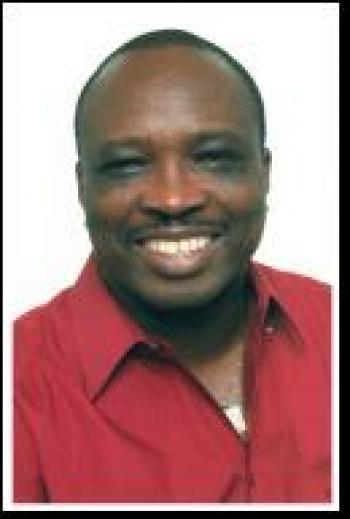‘WILL YOU CRY OUT?’

|
THE CHURCH IS REAPING bounteous benefits from her empowerment of the youth, even as youths across all strata of society and across the globe are seeking greater participation and asserting their place in the order of things. For a very long time, youth participation is an integral part of the works of the Church. Since the time of St. John Paul II, the Church makes a very public demonstration of her recognition of the place of youths in today and tomorrow’s Church. The International World Youth Day, a biennial gathering of youths from all over the world inaugurated by St. John Paul II, has presented opportunities for the youths of the world to come together, to share experiences, to live their faith in uncommon proximity, to witness to that faith, and to be renewed in their commitment to Christ and His Church. By so doing, they have become a platform for the New Evangelization. Pope Benedict XVI as well as Pope Francis continued to make the World Youth Day, not only a supported event, but one which boasts of their personal attendance. Although the International World Youth Day is a biennial event, World Youth Day is celebrated annually at the diocesan level throughout the Catholic World on Palm Sunday.The last International WorldYouth Day was held in Krakow, Poland in 2016, while the next one holds in Panama in January of 2019.The Church, always ahead of the rest of the world,is preparing for an Ordinary Synod of Bishops on the theme “Youth, faith and vocational discernment”. The Synod, announced in 2016, will hold in October 2018 and, in preparing for that Synod, the Church has reached out to the youths in a special way. During the week leading to this year’s World Youth Day, the Church invited 300 youths from all parts of the world and of different religious persuasions to Rome to discuss the theme of the Synod that is to come. 1,500 other youths participated via the internet. At the end, the youths submitted their conclusions in which they called for greater roles for the youth in the life of the Church and for a credible Church.”A credible Church is one which is not afraid to allow itself to be seen as vulnerable. The Church should be sincere in admitting its past and present wrongs.” The participating youths were addressed by Pope Francis on Palm Sunday (March 24) during which he challenged them to let their voice be heard “It is up to you not to keep quiet. Even if others keep quiet, if we older people and leaders — so often corrupt — keep quiet, if the whole world keeps quiet and loses its joy, I ask you: Will you cry out?” That was a day after youths all around the world came out to demand action to address the growing menace of gun violence. Several thousands gathered in hundreds of cities around the globe with the same one concern; gun violence directed at youths and the need for immediate action by authorities. Their calls received varying responses from deep embrace to caustic rejection mainly along political and financial lines in a world of adults dominated by considerations of power and wealth. Many are those who stand with the youths, just as many stand against them, with many confused or conflicted to the point of negligent indifference. What is in it for me (us) became more important than what is for the greater good. There is a strong if subtle lesson from the activities of the youth calling for action on gun violence. The lesson is that when followers become aware that their interests are not being protected by leaders, they will take action to defend those interests, no matter how ill-prepared they are. The problem is that their actions may precipitate unintended consequences which may be detrimental to the good of not a few. As one of their detractors said, it is not in the place of high school students to worry about their safety. But what do they do when those whose duty it is fail to perform, when political and financial matters weigh heavier in their hearts than the obligation of public safety? Thankfully, the Church has shown an example of a listening authority. It is when authorities listen that what is best for all becomes clear. It is then that followership will remain committed. State and other institutional authorities should learn from the example of the Church and not drown the voice of those they claim to lead or represent. Such voice should not only be listened to, but need to be considered. It is destructive when authority listens only to itself or a caucus of yes-men motivated by corrupt personal privilege and gain. Followership is emboldened to giving honest and selfless suggestions when they know that such will be considered just as honestly and selflessly. The right to speak out carries a responsibility to speak truthfully, respectfully and responsibly. Having a voice and using that voice to utter untruth is a disservice to humanity and a betrayal of the gift that one has received. If your voice comes from a gift of intellect, honour that gift by using it in truth; if it comes from uncommon access, appreciate and nourish that access. Show respect in articulating your position; never talk down on the one who may not possess your access or share your views. Remember always that words have meanings, and consequences, and lasting impressions. So be responsible and refrain from using your voice to cause disaffection, bad blood or mischief. Put yourself in the place of others. Let your voice by helpful to all concerned, to the rulers as well as the ruled, the high and the low. May our words serve the cause of love as did those of the One we follow? Happy Easter. |
Copyright © 2024 Roman Catholic Diocese, Abeokuta.





